Brooks vs Asics Running Shoes: Comparing The Differences
Are you in search of the best running shoes to use for your next race? Choosing between Brooks vs Asics running shoes can be tricky. Both are popular brands, but they come with different features and qualities.
In this blog post, we’ll guide you through everything from the most popular models to factors such as construction, stabilization, fit, and comfort. Read on to learn about Asics vs Brooks running shoes so you know which one is right for you!
Which one is better: Brooks or Asics Running Shoes?
Brooks vs Asics running shoes is a difficult choice, as they both provide an array of quality models to accommodate different terrain types, runners’ feet, sizes, and comfort levels. Brooks DNA Loft cushioning provides lightweight durability, while ASICS gel cushioning ensures max shock absorption for long runs. Both brands feature personalized fit systems with customized arch support for enhanced stability, heel support, and foam technology.
What Are Brooks Running Shoes?
Brooks running shoes have long been preferred by athletes for their durability and performance-enhancing features. The brand has earned a reputation among runners as one of the top choices in terms of comfort, support, fit, and quality.
Brooks has an extensive range of footwear designed to address different needs—from support to neutral—so running enthusiasts can find the perfect shoe that fits them best. Brooks takes into account individual foot types when designing its shoes, with different cushioning solutions to optimize runner performance.
Different levels of arch support allow users to take full advantage of midsole technologies, while removable insoles reduce overall pressure on the foot.
In terms of size, Brooks tend to run slightly larger than other shoes, so those with wider feet may find that they fit well.
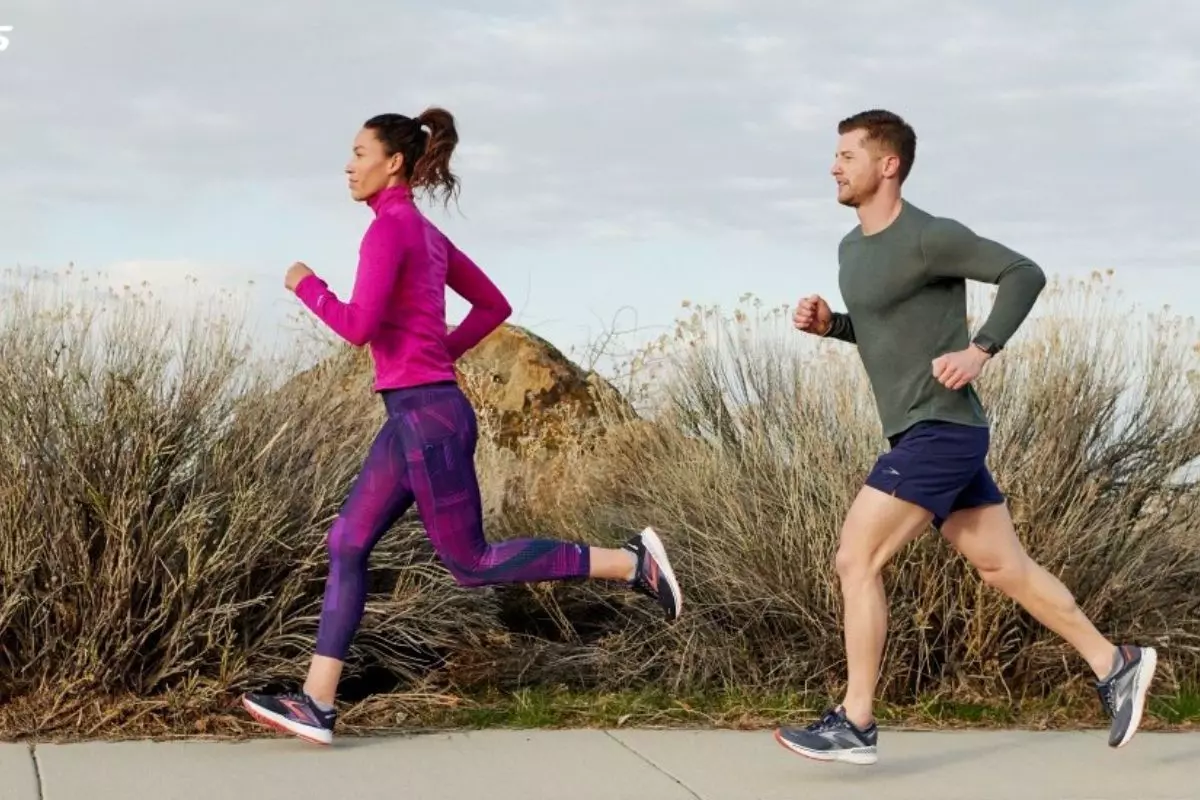
What Are ASICS Running Shoes?
ASICS offers an assortment of running shoes for different surfaces, and incorporates solutions for various common foot problems affecting runners. They provide a variety of styles, constructions, cushioning systems, fits, and features to appeal to different types of runners.
ASICS uses a number of different technologies, like gel cushioning in the midsole, which offers superior shock absorption for maximum impact protection during long runs or races. Its FlyteFoam technology delivers lightweight durability that is up to 55% lighter than standard EVA foam midsoles.
ASICS running shoes have been designed with runners’ foot problems in mind. Runner’s feet come in different shapes and sizes, so the company uses technologies and designs that specifically cater to various foot types, providing comfortable cushioning and support for different runners.
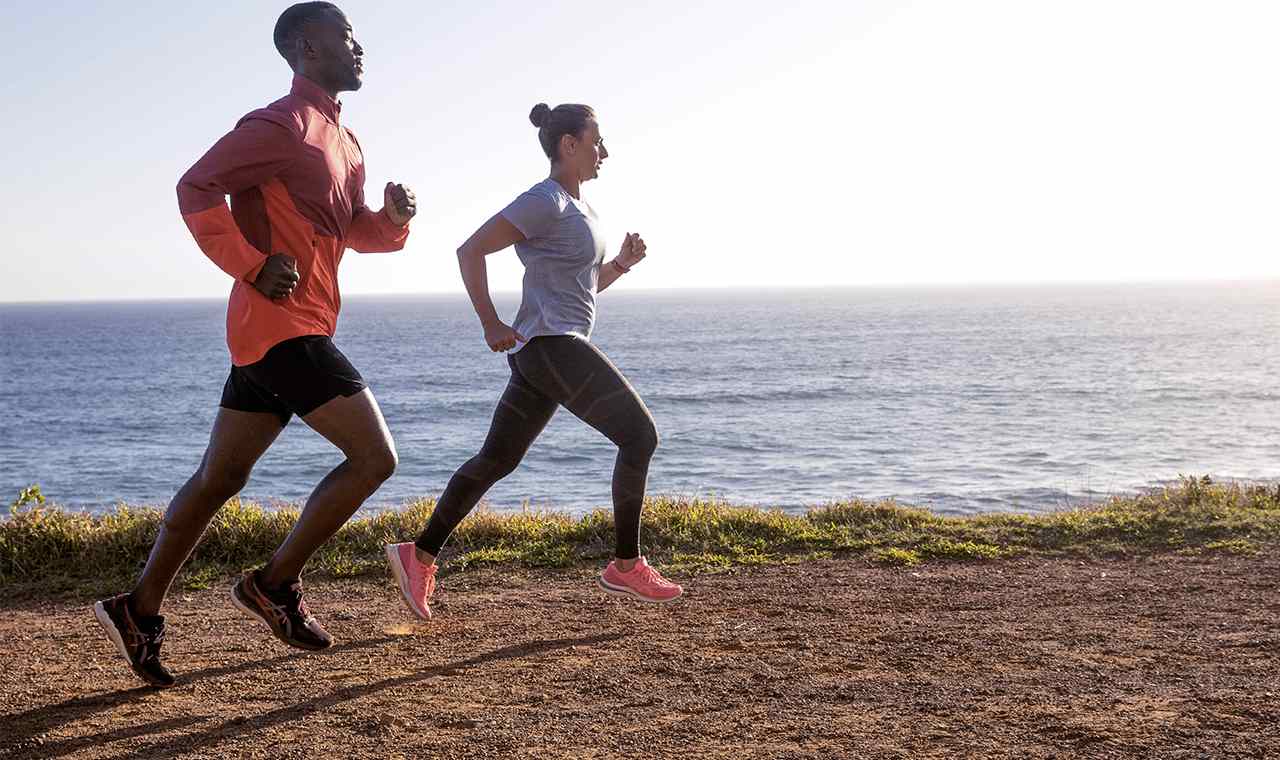
Brooks vs Asics: The Main Differences
Both brands have a number of different features related to construction, cushioning, stability, and support, in order to provide your foot with the best performance possible when running. It’s important to understand the differences between Brooks and ASICS when deciding on a pair of shoes
1. Construction and Cushioning
Both Brooks and ASICS running shoes offer superior cushioning and support. The midsoles of both brands are constructed from similar EVA foam. When choosing between Brooks vs Asics for plantar fasciitis, it is important to note that both manufacturers have proper midsoles.
Brooks running shoes feature their signature DNA midsole technology, which is designed to absorb initial shock and keep your feet stable over long runs.
ASICS utilizes a gel-infused cushion system within its midsole technology to dampen heel strike impact while maintaining responsive energy return.
2. Stability and Support
Brooks has a range of shoes designed to provide the perfect balance of cushioning and stability on your runs. The Adrenaline GTS 22 is their most popular stability shoe, built specifically to correct overpronation, with plush cushioning for extra comfort.
ASICS stands out for its durable, run-specific support, thanks to two core technologies: FlyteFoam Lyte Technology and Gel Cushioning System.
Arch stabilizers have been included in specific models from both brands to offer support from heel to toe, while still allowing for enough flexibilityto prevent the restriction of movement on different surfaces.
Subscribe to Our Running Newsletter!
Get free running tips from renowned professional athletes and discounts from top-notch brands.
3. Fit and Comfort
When it comes to the fit and comfort of running shoes, Brooks and ASICS offer key differences. In general, Brooks has a roomier toe box compared to ASICS, which has a snugger fit in the midfoot and heel.
This means runners with wide feet may find that Brooks offer better support, while those who want a tighter fit may opt for ASICS instead. Both feature lightweight designs, as well as breathable materials to keep your feet cool throughout runs.
The main differences between ASICS and Brooks
| Criteria | ASICS | Brooks |
|---|---|---|
| Durability | 450-500 miles | 300-500 miles |
| Breathability | Ortholite material | Knit upper |
| Fit | Regular/Narrow | Regular/Wide/X-Wide |
| Cushioning | Flytefoam/Gel | DNA Foam options |
| Stability | Duomax midsole | Responsive midsole |
| Price | $100-$160 | $100-$150 |
Are Brooks or Asics Better?
It can be difficult to decide between Brooks running shoes and ASICS running shoes. When it comes to overall performance, comfort, durability, and price range, both brands offer excellent options for runners looking for the perfect pair of shoes.
However, there are notable differences in design and features that could influence your decision. Brooks shoes provide great cushioning, thanks to their midsole foam, which provides greater energy return than other materials used in the market.
They also have wider designs, which provide more freedom of foot movement, without feeling too constricted or uncomfortable. They also tend to last longer due to their durable construction.
ASICS, on the other hand, emphasize stability by featuring supportive midsole technology. This delivers maximum cushioning and an exceptional lightweight experience.
Brooks vs Asics: Summary
Overall, Brooks and ASICS running shoes both have advantages and disadvantages, depending on the runner’s needs. While some runners prefer ASICS for their lightweight construction, others like Brooks for their optimal cushioning and comfort.
Let’s discuss the pros and cons of each brand:
Pros and Cons of Brooks Running Shoes
Brooks running shoes are popular among runners in search of extra protection, stability, and support. The brand features a unique, ballistic rock shield EVA for added protection on trail runs, plus a custom stability line for runners who need more support.
Additionally, there’s an impressive array of sizes and styles to select from to fit different runners’ needs. However, Brooks options can be more pricey than ASICS.
Pros and Cons of ASICS Running Shoes
Asics running shoes are renowned for their performance-enhancing technologies and range of sizes. Many runners appreciate the cushioning, support, stability, and responsiveness that the FlyteFoam Lyte technology offers.
Additionally, ASICS gel-cushioning helps reduce shock impact during long runs. Furthermore, the brand’s signature Guidance Trusstic System provides a smooth transition by controlling excessive foot movement when taking off or landing during a stride.
The drawback to ASICS shoes is that they have been criticized as being narrow and relatively heavy.
The pros and cons of ASICS and Brooks
| Pros of ASICS Shoes | Cons of ASICS Shoes | Pros of Brooks Shoes | Cons of Brooks Shoes |
|---|---|---|---|
| Lightweight and extra-flexible construction | Too narrow to fit extra wide feet | Plush comfort and soft touch | May not be snug enough for narrow feet |
| Specializes in running shoes | May not provide enough stability for beginners | Options for all types of arches and gaits | The upper may wear out a bit faster |
| Increased breathability | Reliable support and stability | ||
| More durable | Extra wide fit available |
Our Recommendations for Brooks Running Shoes
Let’s take a look at some of the best Brooks running shoes and how they can help you in achieving your fitness goals:
Good for Long Runs
Brooks Men’s Ghost 14 Neutral Running Shoe
The Brooks Men’s Ghost 14 is one of the top models from the popular running shoe maker, designed specifically for neutral runners. It offers balanced cushioning and a smooth ride so that you can stay on your feet longer and run farther.
With its responsive midsole cushioning and wide range of sizes, it’s sure to keep your feet comfortable, regardless of terrain or foot type.
- Sole Material: Rubber
- Outsole (tread feature): Soft-blown rubber with flex grooves
- Drop: 12mm
- Season: All-season
- Special Features: DNA LOFT and BioMoGo DNA cushioning
- Size: 7 to 15
- Type: Neutral running shoes
Good for Various Surfaces
Brooks Men’s Glycerin GTS 20 Supportive Running Shoe
The Brooks Men’s Glycerin GTS 20 is designed to provide cushioning, stability, and support for both long runs and short sprints. The shoe features GuideRails® support technology for optimal foot control during your run, helping keep you balanced on all surfaces.
For runners needing extra stability or pronation control , the shoes offer a secure fit to encourage proper gait transition without compromising traction, even in wet conditions.
- Material: Engineered mesh upper
- Sole Material: Rubber
- Outsole (tread feature): Blown rubber with segmented pattern
- Drop: 10mm
- Season: All-season
- Special Features: GuideRails support, DNA LOFT and BioMoGo DNA cushioning
- Size: 7 to 15
- Type: Supportive running shoe
Good for Road Running
Brooks Men’s Adrenaline GTS 22 Supportive Running Shoe
The Brooks Men’s Adrenaline GTS 22 is a go-to shoe for many runners. It provides excellent support and stability, while remaining lightweight and comfortable on the feet.
It features an internal arch wrap for additional support that conforms to your feet better over time. Suitable for both short runs and marathons, it remains popular among road runners thanks to its reliable construction and comfort offered by traditional fit sizing.
- Material: Engineered mesh upper
- Sole Material: Rubber
- Outsole (tread feature): Blown rubber with segmented pattern
- Drop: 12mm
- Season: All-season
- Special Features: GuideRails support, DNA LOFT cushioning
- Size: 7 to 15
- Type: Supportive running shoe
Our Recommendations for ASICS Running Shoes
Here are three highly-rated ASICS running shoes:
Good for Distance Runs
ASICS Men’s Gel-Kayano 28 Running Shoes
The ASICS Men’s Gel-Kayano 28 is designed for runners seeking superior stability and comfort. With their reliable cushioning system, these shoes give you optimal support during activities such as running, jogging, trail running, or everyday walks.
Runners with medium arches who overpronate will receive extra support in these shoes due to the two foam layers. They provide good shock absorption and a slightly firmer feel that keeps feet stable, even under stress.
- Material: Engineered mesh upper for breathability and comfort
- Sole Material: Rubber
- Outsole (tread feature): Durable rubber with traction pattern
- Drop: 10mm
- Season: All-season
- Special Features: GEL cushioning, Dynamic DuoMax support
- Size: 7 to 15
- Type: Stability running shoe
Good for Everyday Runs
ASICS Men’s Gel-Nimbus 24 Running Shoes
The ASICS Men’s Gel-Nimbus 24 are designed with a super soft cushioning technology to make every stride bouncy and comfortable. The versatility of these shoes is perfect for daily training runs.
With this unique combination of features, and the fact that it is lightweight yet supportive, the ASICS Men’s Gel-Nimbus 24 is ideal for road runners who prioritize comfort over everything else.
- Material: Engineered mesh upper for breathability and flexibility
- Sole Material: Rubber
- Outsole (tread feature): High-abrasion rubber with traction pattern
- Drop: 10mm
- Season: All-season
- Special Features: GEL cushioning, Ortholite X-55 sockliner
- Size: 6 to 15
- Type: Neutral running shoe
Good for Rough Terrain
ASICS Men’s Gel-Cumulus 23 Running Shoes
The ASICS Men’s Gel-Cumulus 23 is a top choice for runners of all levels. As part of the brand’s popular Gel Technology series, these shoes provide superior cushioning and stability, even on rough terrain.
The combination of gel cushioning and dual-angle midsole geometry creates a plush ride that’s designed to reduce shock whether you’re running on roads or trails. It also helps protect against issues such as shin splint pain, while providing improved energy efficiency.
- Material: Engineered mesh upper for breathability and flexibility
- Sole Material: Rubber
- Outsole (tread feature): Durable rubber with flex grooves
- Drop: 10mm
- Season: All-season
- Special Features: GEL cushioning, FLYTEFOAM technology
- Size: 7 t o12.5
- Type: Neutral running shoe
Frequently Asked Questions About Brooks vs Asics
How do ASICS run compared to Brooks?
Brooks and ASICS both offer a variety of choices catering to different preferences and needs. That being said, Brooks is known for its plush cushioning, which provides extra shock absorption. Conversely, ASICS focuses more on stability, which is provided by its firm inner layers.
Why do podiatrists recommend Brooks shoes?
Brooks has become one of the go-to brands for many podiatrists due to added comfort, cushioning, and support that can greatly benefit runners with any number of foot conditions or ailments.
Final Thoughts on ASICS vs. Brooks
When it comes to comparing Brooks and ASICS running shoes, there are a few key differences to consider. ASICS shoes have a snugger fit compared to Brooks’ larger toe box. In terms of cushioning and material used for each brand’s midsoles, Brooks uses foam, whereas Asics opts for gel-based designs.
Finally, in terms of overall durability and performance, reviews suggest that there is no clear winner, as both offer great options.
As for Brooks vs Asics sizing, the wide variety of sizes provided by both brands means you will be able to find the perfect fit, regardless of which company you go with. Just be sure to take into account the characteristics of your foot and the type of running load when choosing between Asics nimbus vs. Brooks ghost.
Which running shoes do you prefer: Asics or Brooks? Please share your favorites in the comments below.
Also read:
- Hoka vs Brooks Running Shoes
- Why Do Athletes Drink Pickle Juice
- How Many Miles Is Considered Long Distance
- Benefits of Rucking vs Running
- Stretches for Hip Pain From Running
- Best Running Insoles for Overpronation
- Sneakers Vs Running Shoe
References:
- Tips For Runners: How To Prevent Plantar Fasciitis // Wphphysio: https://wphphysio.com.au/tips-for-runners-how-to-prevent-plantar-fasciitis/
- Foot Pronation Contributes to Altered Lower Extremity Loading After Long Distance Running // Frontiers Media: https://www.frontiersin.org/articles/10.3389/fphys.2019.00573/full
- The Two Density Midsole // ASICS: https://corp.asics.com/en/about_asics/institute_of_sport_science/technology/two-density-midsole
- Shock Response Spectrum Analysis of Fatigued Runners // MDPI: https://www.mdpi.com/1424-8220/22/6/2350
- More than the foot: the science behind how Guide RailsⓇ technology supports your run // Brooks Running: https://www.brooksrunning.com/en_us/blog/research-innovation/the-science-behind-guiderails-technology.html
If you have any questions or suggestions, you can contact us via email – [email protected]

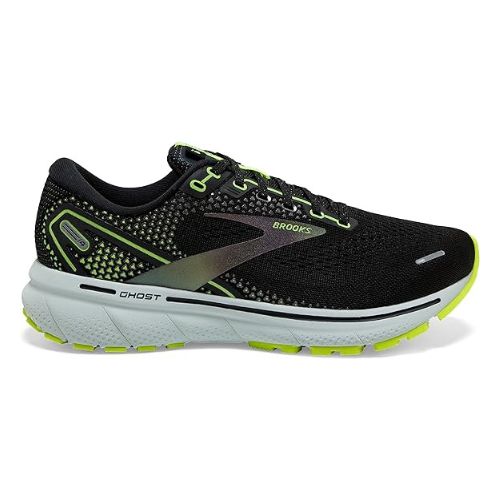
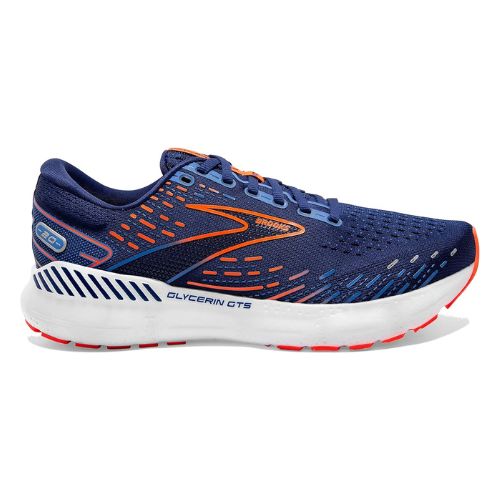
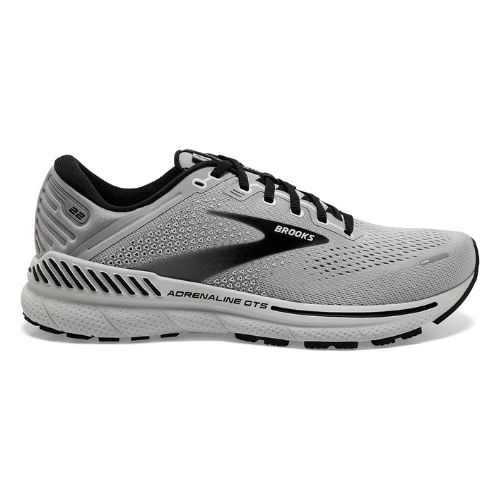
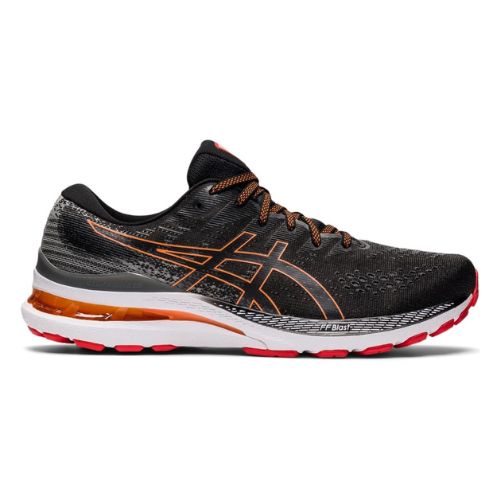
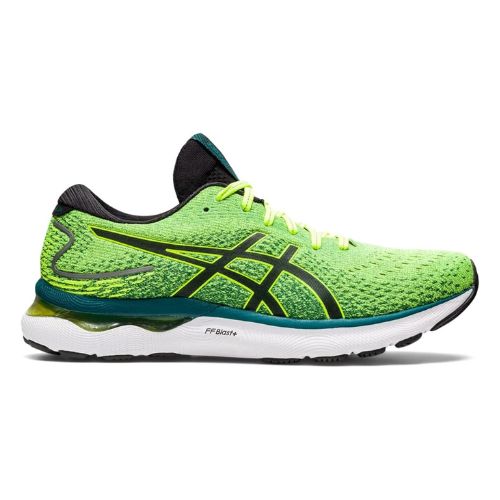
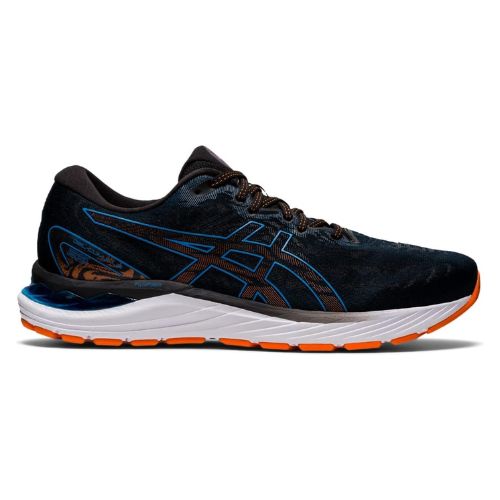
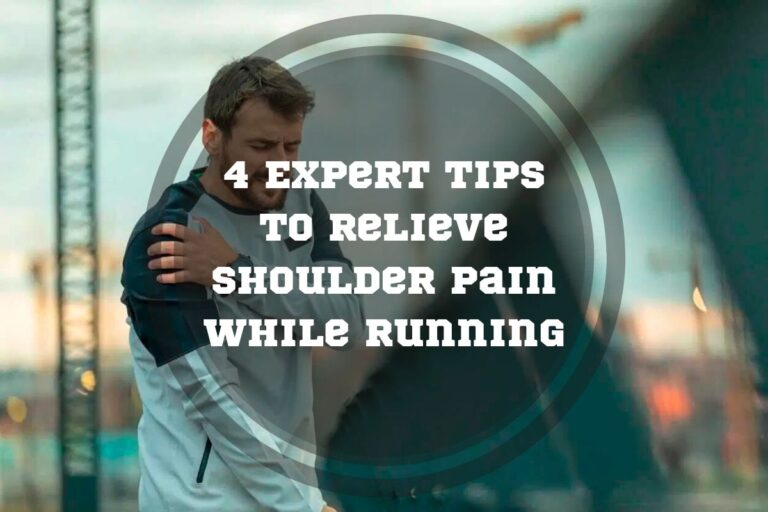





Just needed to buy new sneakers for daily running and activities in the gym. I read your recommendations and as a result chose the Brooks Ghost 14 model in black. So far it’s been a week and I love everything about them: design, support, moderate cushioning and good value.